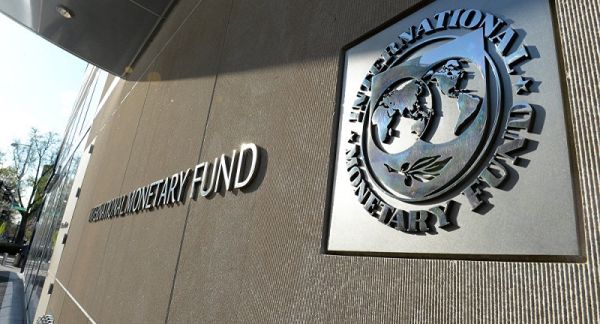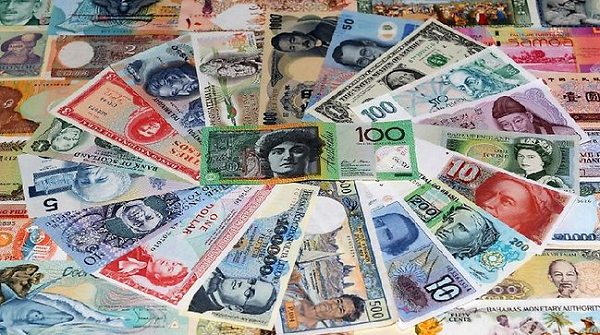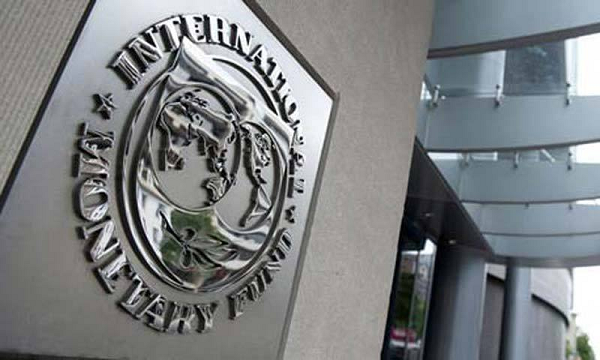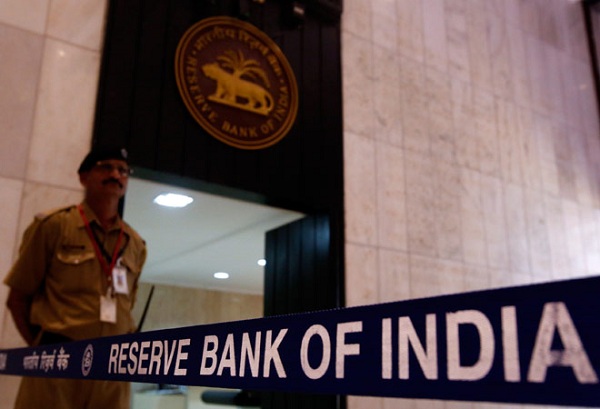
by admin | May 25, 2021 | Corporate, Corporate finance
 Washington, (IINA) : The Executive Board of the International Monetary Fund (IMF) approved a two-year arrangement for Morocco under the Precautionary and Liquidity Line (PLL) for an amount of $3.47 billion.
Washington, (IINA) : The Executive Board of the International Monetary Fund (IMF) approved a two-year arrangement for Morocco under the Precautionary and Liquidity Line (PLL) for an amount of $3.47 billion.
The access under the arrangement in the first year will be equivalent to about $1.73 billion, according to an IMF statement. The new PLL arrangement will provide Morocco with useful insurance against external shocks as the authorities pursue their reform agenda aimed at further strengthening the economy’s resilience and fostering higher and more inclusive economic growth.
“The authorities have successfully reduced fiscal and external vulnerabilities and implemented key reforms with the support of two successive 24-month PLL arrangements”, the same source pointed out.
Morocco’s first PLL arrangement for $6.21 billion was approved on August 3, 2012. Morocco’s second 24-month PLL arrangement for $5 billion was approved on July 28, 2014.
The PLL was introduced in 2011 to meet more flexibly the liquidity needs of member countries with sound economic fundamentals and strong records of policy implementation but with some remaining vulnerabilities.
Following the Executive Board on Morocco, IMF Deputy Managing Director and Acting Chair of the Board Mitsuhiro Furusawa said: “Despite the difficult global and regional environments, Morocco has made significant strides in reducing fiscal and external vulnerabilities and addressing medium-term challenges, supported by the two successive Precautionary and Liquidity Line (PLL) arrangements.
External imbalances have declined substantially and fiscal consolidation has progressed, while policy and institutional frameworks have been strengthened, including through the implementation of the new Organic Budget Law, the adoption of the civil service pension reform, and ongoing improvements to financial sector oversight.”

by admin | May 25, 2021 | World
 Washington (IINA) – Head of the International Monetary Fund (IMF) Christine Lagarde said Wednesday that the amount of money paid worldwide in bribes is between 1.5 trillion and 2 trillion dollars, or about 2 percent of the value of the world’s economic output, DPA reported.
Washington (IINA) – Head of the International Monetary Fund (IMF) Christine Lagarde said Wednesday that the amount of money paid worldwide in bribes is between 1.5 trillion and 2 trillion dollars, or about 2 percent of the value of the world’s economic output, DPA reported.
Lagarde quoted the figure from recent IMF research in an open letter published one day before the start of an anti-corruption summit in London. She said the amount is an estimate of the total value of bribes paid annually in both developing and developed countries.
Lagarde explained that corruption “undermines trust in government and erodes the ethical standards of private citizens.”
While the direct economic costs of corruption are well known, “the indirect costs may be even more substantial and debilitating, leading to low growth and greater income inequality,” she wrote.
The IMP chief also said in order to fight corruption, a multifaceted approach that promotes transparency and strong institutions centered on a professional civil service is needed.

by admin | May 25, 2021 | Muslim World
 DUBAI: The International Monetary Fund (IMF) said on Thursday it had reviewed Pakistan’s economic performance and will make available a further $510 million to the country as part of a three-year, $6.7 billion financial assistance programme.
DUBAI: The International Monetary Fund (IMF) said on Thursday it had reviewed Pakistan’s economic performance and will make available a further $510 million to the country as part of a three-year, $6.7 billion financial assistance programme.
The money will be provided when the review is approved by the IMF’s management and executive board, the Fund said in a statement, describing its discussions with Pakistan as “productive” and adding that performance criteria in the programme had been met.
“After productive discussions, the mission and the Pakistani authorities have reached staff- level agreement on the completion of the eleventh review under the EFF arrangement,” said Harald Finger, the Fund’s mission chief for Pakistan.
The statement added that growth has remained robust despite a weak cotton harvest and declining exports amid a more challenging global environment.
“Real GDP growth is expected to reach 4.5 percent in FY 2015/16 and 4.7 percent in FY 2016/17, helped by favorable oil prices, rising investment, including related to the China Pakistan Economic Corridor (CPEC), improvements in energy supply, buoyant construction activity, and acceleration of credit growth.”
IMF stated that all end-March 2016 quantitative performance criteria, including the budget deficit target and the floor on the SBP’s net international reserves, have been met.
Pakistan’s gross domestic product growth is projected at 4.5 per cent in the 2015/16 fiscal year and 4.7pc in the following year, the IMF said.
The agreement was reached after the IMF mission held discussions with Finance Minister Ishaq Dar, SBP Governor Ashraf Wathra and other senior officials in Dubai from May 2 to May 11.

by admin | May 25, 2021 | Business, Large Enterprise
 New Delhi : (IANS) The RBI efforts to deal with the state-run banks’ huge non-performing assets (NPAs) or distressed loans are steps in the right direction, International Monetary Fund (IMF) managing director Christine Lagarde said on Sunday.
New Delhi : (IANS) The RBI efforts to deal with the state-run banks’ huge non-performing assets (NPAs) or distressed loans are steps in the right direction, International Monetary Fund (IMF) managing director Christine Lagarde said on Sunday.
“The (move of) Reserve Bank of India governor (Dr Raghuram Rajan) addressing bank balance sheets is absolutely right,” she said at the Advancing Asia conference here, co-hosted by the union government and the IMF.
Lagarde said the Indian government was also moving to get a bankruptcy and insolvency law enacted to address the bad loans problem.
Addressing the conference earlier on Sunday, Finance Minister Arun Jaitley said the government hopes to enact the bankruptcy and solvency as well as the Goods and Services Tax bills in the second half of the budget session of parliament beginning April 20.
The NPAs of public sector banks (PSBs) have increased by close to Rs.1 lakh crore in the first nine months of the current fiscal, parliament was told earlier this week.
“The gross non-performing assets of the PSBs increased from 5.43 percent as of March 2015 to 7.30 percent as of December 2015,” Jaitley told the Rajya Sabha in a written reply.
In money terms, gross NPAs of state-run banks increased from Rs.2,67,065 crore in March 2015 to Rs.3,61,731 crore in December 2015, he said, which was an increase of Rs.94,666 crore over nine months of the current fiscal.
Meanwhile, Lagarde told reporters here on Sunday that the central American nation of Cuba has not yet made a request for IMF membership, and that such a request will be considered in accordance with the norms of the multilateral lending agency.
Cuba was one of the founding members of the IMF until it left the organisation in 1964, following crisis with the US.

by admin | May 25, 2021 | Business, Emerging Businesses, Opinions

By Amit Kapoor
The acronym BRICS (Brazil, Russia, India, China, and South Africa) is attributed to economist Jim O’Neill of the Goldman Sachs, who initially coined the term and hypothesized their rise at the turn of the century.
Today, BRICS together account for 30 percent of global land, 43 percent of global population, 17.3 percent of the world’s merchandise trade, 12 percent of global commercial services and 45 percent of the world’s agricultural production. These staggering statistics suggest a potential to lead from the front in the comity of nations. This year’s summit was the seventh meeting of the global club that sets the precedent for an emerging global order. The theme of this year’s summit was ‘BRICS Partnership – A Powerful Factor for Global Development’. The summit resulted in the Ufa declaration that essentially talks about broadening the Intra-BRICS regional cooperation.
A high point in this year’s summit was further steps for operationalization of the BRICS bank or ‘New Development Bank’ (NDB). The NDB had taken proper shape during the previous BRICS summit in Fortaleza in Brazil. The NDB has at present an equal contribution from the all the members unlike the Bretton Woods twins (namely the World Bank and IMF) and other multilateral banks like the Asian Development Bank. These have varied contributions from different member states. The first President of the NDB was decided to be from India in the previous summit and the Indian government was prompt to name veteran banker KV Kamath as NDB’s first president. Before the summit in Ufa, Kamath made a statement about operationalizing the BRICS bank and approving the first loan by April 1, 2016.
Four points about the recent summit and the broader trends that it points to are noteworthy:
First, there is increasing multipolarity and multilateralism in world affairs. The post-Soviet world is fragmented and at the same time a lot of negotiations are happening at the bilateral and multilateral level. Prime Minister Narendra Modi, prior to attending the BRICS and the SCO Summits, visited the five central Asian countries of Turkmenistan, Tajikistan, Uzbekistan, Kyrgyzstan, and Kazakhstan. These visits point to India’s increasing reliance on talks for furthering its interests and boosting trade.
Second, geography matters but its influence in global affairs is reducing. It is reflected in the fact that countries from different continents are willing to engage and embrace each other. It also points to a new kind of multilateralism that is not overtly dependent upon the primary platforms for trade especially the World Trade Organization and earlier related trade bodies. It is a great force in international trade and diplomacy especially for countries like India, which are out of some of the major Mega Regional Trade Agreements.
Third, the creation of newer multilateral development banks like the BRICS bank and AIIB (Asian Infrastructure Investment Bank) are a testimony to the aspirations of the developing world for greater infrastructure and economic development. It also shows their enthusiasm as well as their growing power and sphere of influence. It does not necessarily mean reduction in the role of the other multilateral banks especially the Bretton Woods twins. However with these developments, it certainly reduces the overdependence and overreliance on the earlier multilateral institutions for financing economic development.
Finally, groupings like the BRICS have found a new amplified voice in the world affairs. It can be gauged from the response of President Putin when asked by journalists on his take on EU and Greece: “Of course, all the blame can be shifted to the Greeks. But if there were violations in their activity, where was the European Commission? Why didn’t it make any adjustments to the economic activity of the previous government of Greece?” Though blunt, it clearly shows growing assertiveness on the part of leaders from the BRICS in world affairs.
The next BRICS summit is slated to be held in India. The changing stature of BRICS suggests that they have now begun to exert significant influence in world affairs and are shifting the economic and strategic balance towards the developing country side. How far will the balance shift over the long time frame remains to be seen.
(The article is co-authored with Sankalp Sharma, Senior Researcher at the Institute for Competitiveness, India. is Chair, Institute for Competitiveness & Editor of Thinkers. The views expressed are personal. Amit can be reached at amit.kapoor@competitiveness.in and tweets @kautiliya)

 Washington, (IINA) : The Executive Board of the International Monetary Fund (IMF) approved a two-year arrangement for Morocco under the Precautionary and Liquidity Line (PLL) for an amount of $3.47 billion.
Washington, (IINA) : The Executive Board of the International Monetary Fund (IMF) approved a two-year arrangement for Morocco under the Precautionary and Liquidity Line (PLL) for an amount of $3.47 billion.



